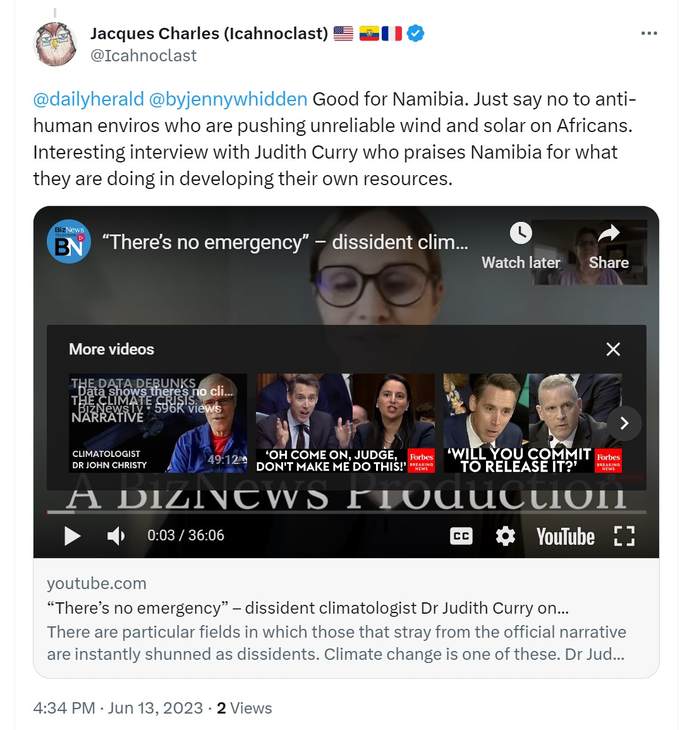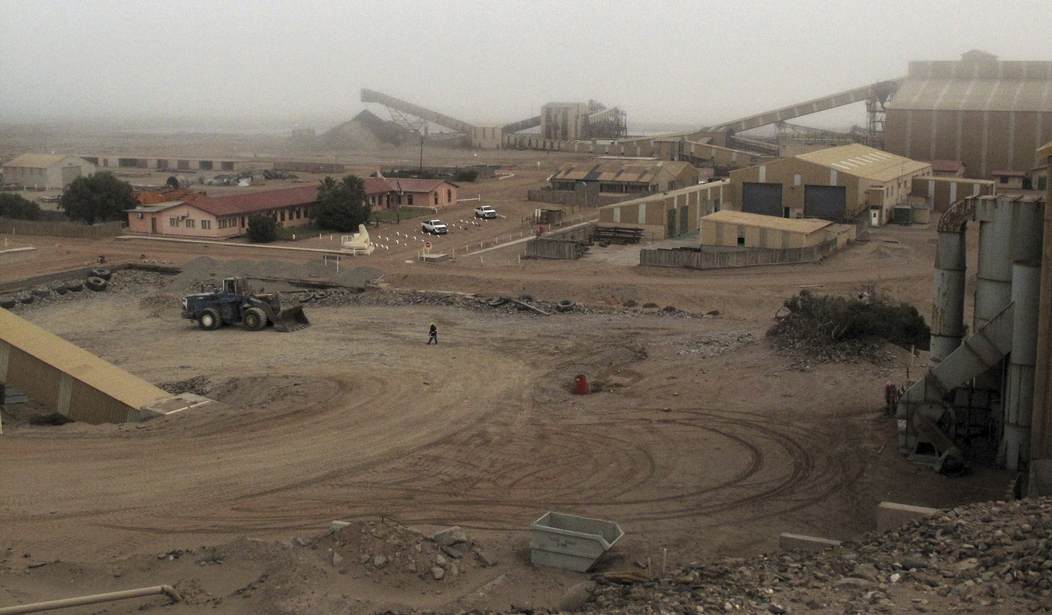This is big in this renewables day and age, and I don’t believe I saw a peep about it until this tweet from my friend Jusper a minute ago.
This is the Africa we all want. From Li to Chromium, to Phosphate, to our oil, Cocoa, Coffee, etc.
We will create jobs in the process and generate more revenue from our resources.
The giant is awakening pic.twitter.com/eHZ0rYrBl0— Jusper Machogu (@JusperMachogu) June 13, 2023
Back in December of last year, Zimbabwe was the first nation to put a halt on wholesale exportation of their precious national lithium resources, but the results haven’t been quite what the government was expecting. The idea was to encourage local processing of the ore, thereby bringing jobs and industrial development to Zimbabwe instead of the ore leaving and all those opportunities going elsewhere.
Now, however, a stockpile has built up within the country and the mining federation is having a cow. “What happens after the ban” hadn’t been part of the planning, and probably should have. The outright shutdown of exports is adversely affecting small to mid-size mining operations who had standing agreements in addition having taken loans out to process the material in their respective countries.
…The ban — introduced by the government last December in a bid to encourage local processing of the metal — has resulted in 2 million tons of ore being stockpiled, according to Zimbabwe Miners Federation President Henrietta Rushwaya. Now the industry has asked President Emmerson Mnangagwa to review the ban as it threatens the viability of their operations.
…Most of the lithium from Zimbabwe — which has one of Africa’s largest resources of the metal — is usually shipped to China or South Africa, Rushwaya said by phone. Nations from the US to China are rushing to secure supplies of materials necessary for green-energy transition as the world turns away from fossil fuels.
So this means prices will have an additional Zimbabwean premium on them.
As for investments in local processing since, no one but the Chinese are prepared to move in at the moment to build battery plants in situ. Sticky wicket, that.
The government is hustling to rejigger the law in order to allow companies who had such agreements 6 months’ time to unload the ore they’d already mined, and fulfil their standing contracts. In the meantime, new mines coming online can still circumvent the ban depending on the grade and type of lithium they pull out of the ground. Sounds very much like a “depends what your definition of is is” situation.
…Premier African Minerals CEO George Roach said: “We expect to produce spodumene, a lepidolite mica-rich concentrate and a tantalum-rich concentrate.”
Lithium plays an essential role in decarbonisation plans for the global economy as it is a key element of batteries. The new mine will also produce tantalum, which has applications including chemical equipment, heating elements and surgical implants.
…The facility will export lithium concentrates and therefore not be held to Zimbabwe’s ban on the export of raw lithium ore.
The government banned lithium ore exports in January to incentivise investment in local processing facilities and to discourage unregulated artisanal mining, smuggling and “externalisation to South Africa and the United Arab Emirates”, SM reported.
…The government is due to give mining companies that had stockpiled lithium ore before the export ban six months to sell it under a new law currently being drafted.
Under the proposed rule, “the affected people shall be given a one-off permit valid for six months, after which they will not be able to sell their stocks”.
Zimbabwe wants to emphasize locally produced battery-grade lithium and eventually be able to tax lithium concentrate exports. They’re going to have to straighten out the infrastructure and stockpile snafu first.
Hopefully, Namibia has watched all this go down and game-planned for their move a little more thoroughly. They have made a separate deal with the European Union for export, so that’s a positive step as far a markets got.
But they surely see profits to be kept at home from this point foreword.
…The government of Namibia said on Thursday that it has barred the export of unprocessed lithium and other vital minerals in an effort to capitalize on the rising demand for metals used in renewable energy technology worldwide.
…Both lithium, which is essential for storing renewable energy, and rare earth minerals like dysprosium and terbium, which are needed for permanent magnets in the batteries of electric automobiles and wind turbines, are abundant in the southern African nation.
…Namibia is a major supplier of uranium and gem-quality diamonds, but as the globe switches to renewable energy sources, interest in its battery metals is rising.
In line with the EU’s desire to lessen its reliance on China for essential minerals, Namibia and the EU reached a deal last year to provide rare earth minerals to the latter.
It’s supremely important to these African nations to be able to utilize their own resources for the good of their citizens. We always refer to them as “developing nations,” but as my friend Jusper points out, ridiculous, arrogant, developed Western World dictates for many African countries are virtually keeping them in the stone-age. Why are we demanding solar panels from people who have no reliable running water or electricity? Why is Janet Yellen flying halfway across the world to pose in front of electricity free grass huts, lecturing the patient and polite occupant about climate change on how someone who has no lightbulbs and no vehicle can do their part?

(Dr Curry’s YouTube is here.)
One needs fossil fuels for tractors and nitrogen for fertilizer if one is not going to be forever condemned to using mules and dung.
'Don't burn oil because of climate change.
Don't burn charcoal either because of climate change. We'd honestly prefer if you starved!'
Fossil Fuels for Africa https://t.co/CC8GQ62Sjr— Jusper Machogu (@JusperMachogu) June 12, 2023
If Africa can keep some of its wealth out of corrupt African and rapacious international hands, they may finally have their day.
This is a start, but there have been so many false ones.
Namibia has been blessed with tremendous natural resources, everything from diamonds to lithium and beyond. If they can put them to work for their people, that would be something.








Join the conversation as a VIP Member